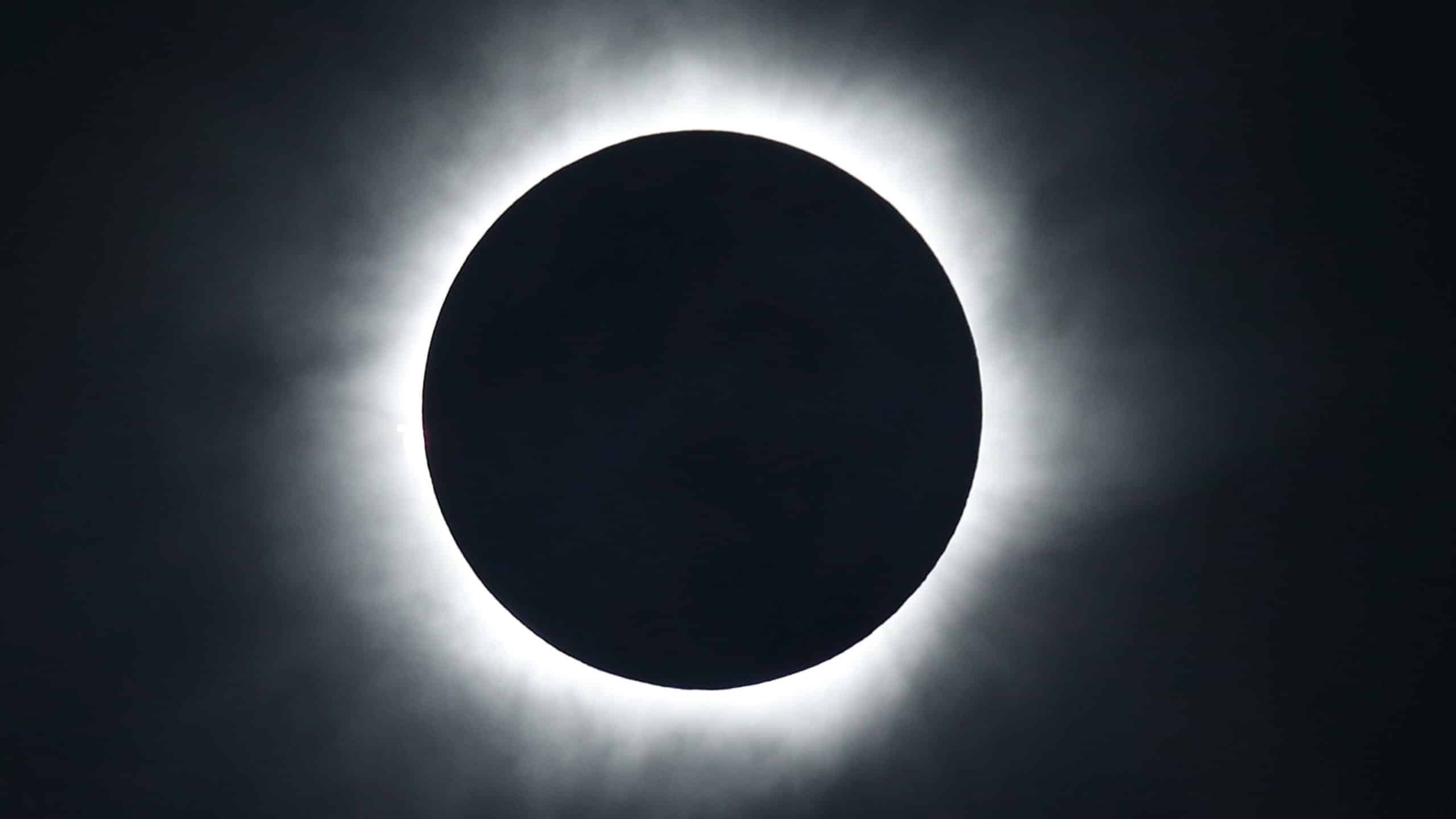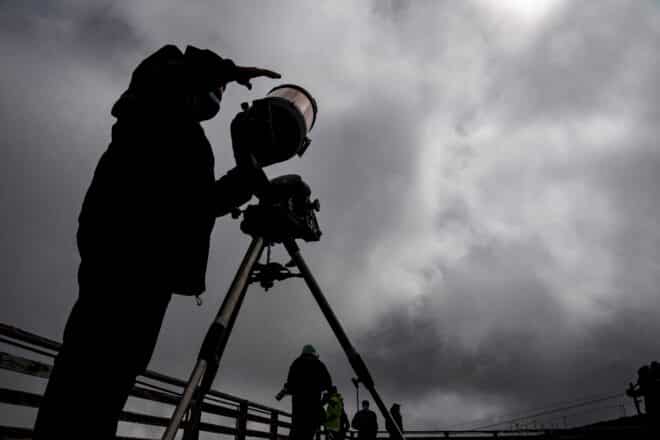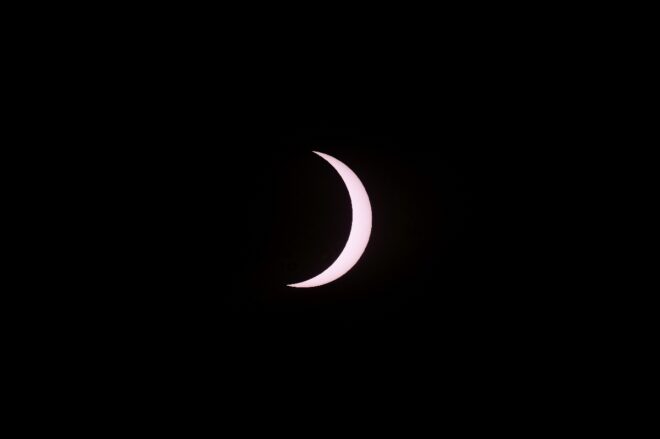Chile, Argentina go dark as total solar eclipse hangs in skies
Tue 15 Dec 2020
A solar eclipse that lasted around two minutes plunged southern Chile and Argentina into darkness on Monday.
Heavy rain had threatened to prevent thousands of star gazers in Chile from seeing the eclipse but at the last moment the clouds parted just enough for the phenomenon to be partially visible.
In Argentine Patagonia, several families and tourists had set up camp between the towns of Villa El Chocon and Piedra del Aguila hoping to see the eclipse.
While there was no rain there, strong winds had threatened to impact visibility of the second total eclipse for Chile in the last 18 months.
This one struck at 1:00pm (8:00pm GST) as thousands of tourists and residents gathered, hoping the clouds would disappear in time.
Image | AFP Image | Reuters Image | AFP
Despite restrictions on movement imposed by authorities to slow the spread of the coronavirus pandemic, almost 300,000 tourists had arrived in the Araucania region around 800-kilometers (500 miles) south of the capital Santiago.
Dozens of amateur and professional scientists set up telescopes on the slopes of the Villarrica volcano — one of the most active in Chile — to observe the phenomenon when the moon passes between the sun and Earth.
The eclipse was due to be visible along a 90-kilometer wide corridor from the Pacific coast in Chile across the Andes mountain range and into Argentina.
In July 2019, some 300,000 people turned out in the Atacama desert in Chile’s north, home to several observatories, to see the previous eclipse.
There have been more than 570,000 coronavirus cases amongst the 18 million population with almost 16,000 confirmed deaths.
Strict controls were announced for the areas where the total eclipse would be visible, with free movement banned both the day before and after.
[Sourced from Agencies]

 Apr 26 2024
Apr 26 2024
















